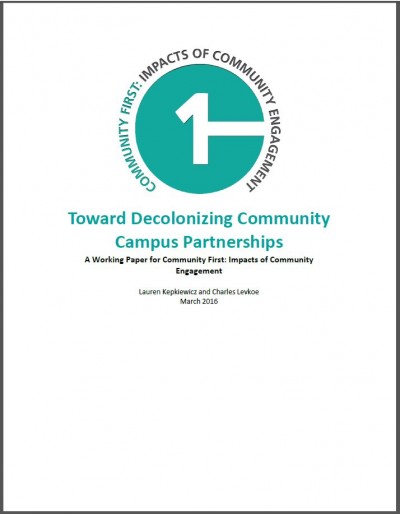 Since its establishment in 2012, social justice and environmental sustainability have been at the heart of Community Food Security (CFS) Hub work. The collective research we have been involved in with our community and academic partners across Canada has highlighted the need to better understand settler colonialism and its implications for food systems work. In a recent post, Lauren Kepkiewicz wrote, “This is particularly important because colonialism in Canada is often ignored, normalized and left undiscussed by non-Indigenous peoples. However, the more we learn, the more we understand Canada as a colonial power that was created by taking Indigenous land, never returning it, and denying Indigenous peoples sovereignty and self-determination.”
Since its establishment in 2012, social justice and environmental sustainability have been at the heart of Community Food Security (CFS) Hub work. The collective research we have been involved in with our community and academic partners across Canada has highlighted the need to better understand settler colonialism and its implications for food systems work. In a recent post, Lauren Kepkiewicz wrote, “This is particularly important because colonialism in Canada is often ignored, normalized and left undiscussed by non-Indigenous peoples. However, the more we learn, the more we understand Canada as a colonial power that was created by taking Indigenous land, never returning it, and denying Indigenous peoples sovereignty and self-determination.”
To better understand how we can decolonize our practices as non-Indigenous/settler peoples involved in community-campus collaborations, we would like to share a draft working paper entitled Toward Decolonizing Community Campus Partnerships: A Working Paper for Community First: Impacts of Community Engagement. We invite feedback on this draft working paper and specifically to the questions posed on the final page.
Feedback can be submitted by commenting on this post or by emailing cfice@carleton.ca!
For more on decolonizing food systems see:
Bradley, K., & Herrera, H. (2016). Decolonizing Food Justice: Naming, Resisting, and Researching Colonizing Forces in the Movement. Antipode 48 (1), 97-114.
Brynne, Abra. 2015. Decolonizing food systems: A journey into an uncomfortable, but necessary place. Rabble.
Kepkiewicz, L., Chrobok, M., Whetung, M., Cahuas, M., Gill, J., Walker, S., & Wakefield, S. (2015). Beyond Inclusion: Toward an Anti-colonial Food Justice Praxis. Journal of Agriculture, Food Systems, and Community Development, 1–6.